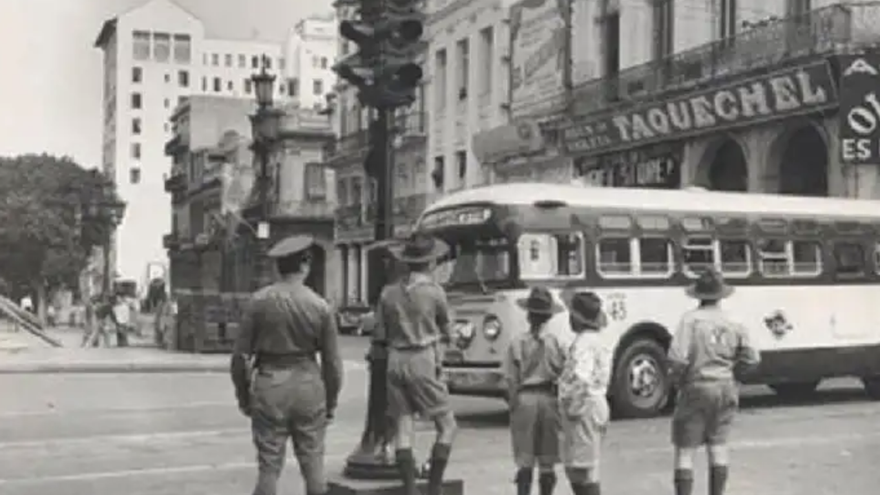
![]() 14ymedio, Frank Calzón, Miami, 5 January 2021 — Neither my friend Guillermo nor I was bothered by the northerly, the winter front that for a few days had been throwing the waves against the wall of Havana’s Malecón. The two of us, ages 13 and 14, were happy directing traffic at one of the most important intersections in the city. Traffic lights at that time were not automatic and required a police officer to change the lights manually.
14ymedio, Frank Calzón, Miami, 5 January 2021 — Neither my friend Guillermo nor I was bothered by the northerly, the winter front that for a few days had been throwing the waves against the wall of Havana’s Malecón. The two of us, ages 13 and 14, were happy directing traffic at one of the most important intersections in the city. Traffic lights at that time were not automatic and required a police officer to change the lights manually.
The police, both the traffic police and the other, the one that persecuted, tortured and murdered young people who opposed the Fulgencio Batista regime, had disappeared as if by magic. Meanwhile, Fidel (everyone called him simply that) had declared Santiago de Cuba the capital of the nation and in a speech advised calm, congratulating all Cubans for the historic moment we were living, and asking the boy scouts to be the policemen in the capital.
It would take a whole week until he, with his rebel army, which was taking on many recruits as he passed through the towns and cities that applauded him deliriously, entered Havana with Huber Matos and Camilo Cienfuegos, one on each side.
We were happy. The country, the people, even the children, sensed that something very good had happened. Havanans laughed seeing us so serious, with our very short shorts, directing traffic. The ladies from the building across the street brought us lemonade with ham and cheese sandwiches.
Hope was reflected in the faces, in the comments, in the expectation of those people who believed in Fidel Castro. Who, except for Batista, who accused him of being a communist, would doubt that he would reestablish the Constitution of 1940, which would eradicate corruption, abuse and press censorship? Fidel had promised that never again would a mother cry for a son in political prison, and the flights with the exiles were already landing in Rancho Boyeros.
Cuba was a party. The people of Havana had enjoyed another Christmas Eve with roast pork, Hatuey beer, yuca with mojo sauce and black beans. They had eaten the nougat, the coconut sweets, and the guava shells, and the flags were waving on the balconies on the eve of the arrival of the heroes.
Later, with dizzying speed, other things would come: the imprisonment and even the execution of some of the heroes that I saw on the television screen along with Fidel and the delirious people. Ideological radicalization and intolerance was imposed by force among Cubans. Our people were subjected to Soviet military interference and hatred to the death was sown on our American neighbors.
But in that first moment we were happy. Cuba seemed to have awakened from a nightmare which, however, was just about to begin. In this January of 2022, after 63 years have passed, I remember everything vividly, how we innocently changed the lights of the traffic signals: from the green of hope to the yellow of suspicion to the red of repression.
____________
COLLABORATE WITH OUR WORK: The 14ymedio team is committed to practicing serious journalism that reflects Cuba’s reality in all its depth. Thank you for joining us on this long journey. We invite you to continue supporting us by becoming a member of 14ymedio now. Together we can continue transforming journalism in Cuba.
